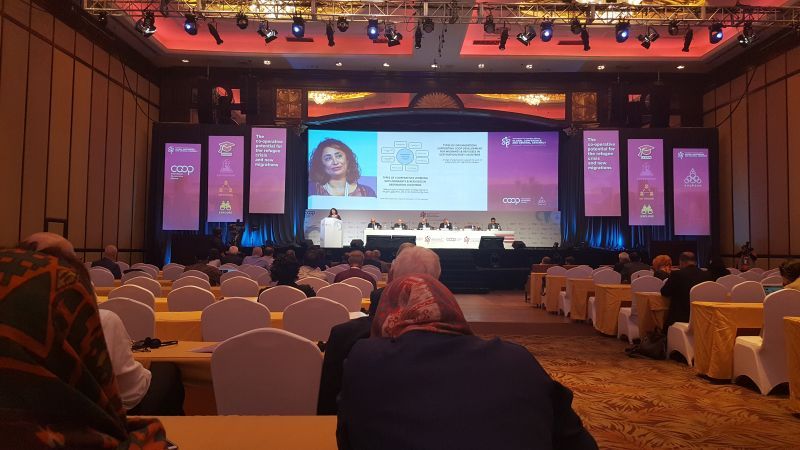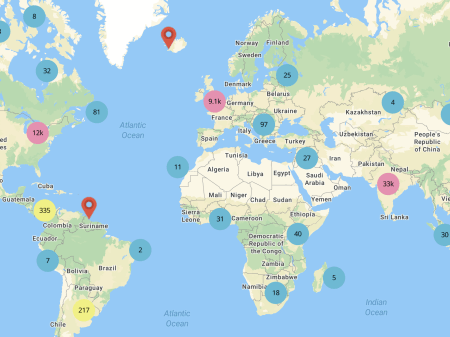
Co-operatives across the world are providing opportunities for refugees to integrate in their new countries. The co-operative potential in addressing the refugee crisis was explored during a LEARN session at the Alliance’s Global Conference in Malaysia.
Simel Esim head of the Cooperatives Unit at the International Labour Organisation (ILO) provided delegated an overview of the current challenges faced by refugees particularly in terms of access to the labour market.
In 2016 the ILO conducted a study on how co-ops engaged with refugees. The ILO looking at finding employment and also protecting the rights of migrants. One of the findings of the studies was that partnerships between co-ops and refugees were very important. The research concludes that co-ops provide services and goods, such as social care and housing, which are important for refugees but not as readily available through other enterprises.
Jan Anders Lago from HSB housing co-operative in Sweden said that without the contribution of refugees to the economy, the country would be poorer.
Carlo Scarzanella from AGCI, the General Co-operative Association of Italy also talked about Auxilium, a social co-op which has been active since 2007 in the management of several reception centers. The model was praised by the Intalian Interious Minister.Hoseyn Polat, senior adviser to the National Co-operative Union in Turkey highlighted that local communities were the most important player in the integration of refugees, with co-ops being part of it. They can help reduce tensions between local communities and provide jobs for refugees.Guido Schwarzendal, managing director of Bauverein Halle & Leuna, a housing co-op in Germany said that 1.4% of their tenants were refugees, for which the state covered the rent and membership fee. The co-op is also working to promote integration among members, moderating discussion groups between neighburs and publishing brochures with information about how to live together.
“We are only responsible for one facet of integration – housing integration means more than housing,” he added.
Akram-Al-Taher, director general of the Economic and Social Developemnt Centre of Palestine described the co-operative Al-Jiftlik in the central Jordan Valley. The co-op is made up of women involved in food processing. Apart from helping them secure employment, the co-op model has enabled them to set up a kindergarten for their children giving them more time to work.
In addition to these case studies, the ILO study includes examples of 27 co-ops that are involved in responding to refugee needs in different contexts.




